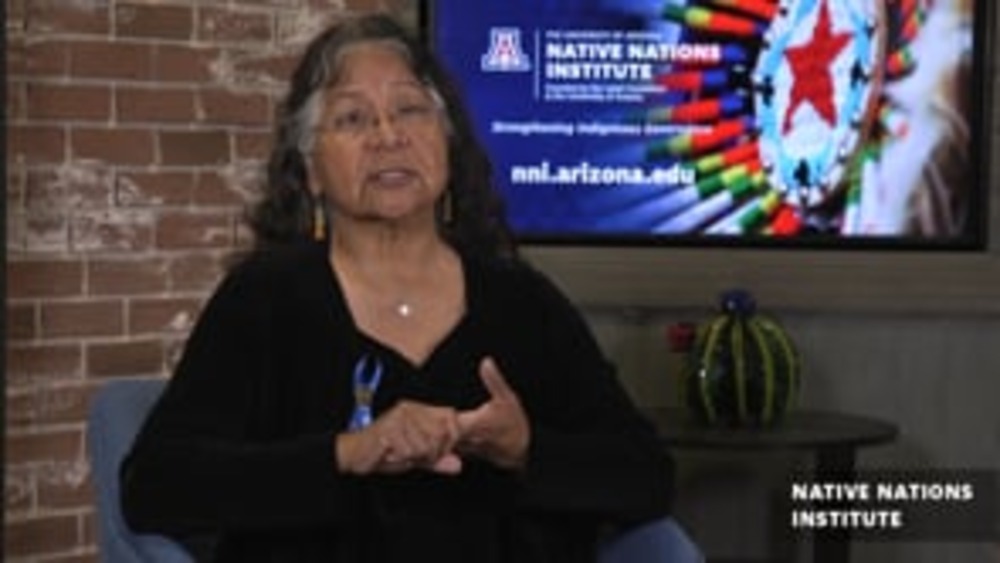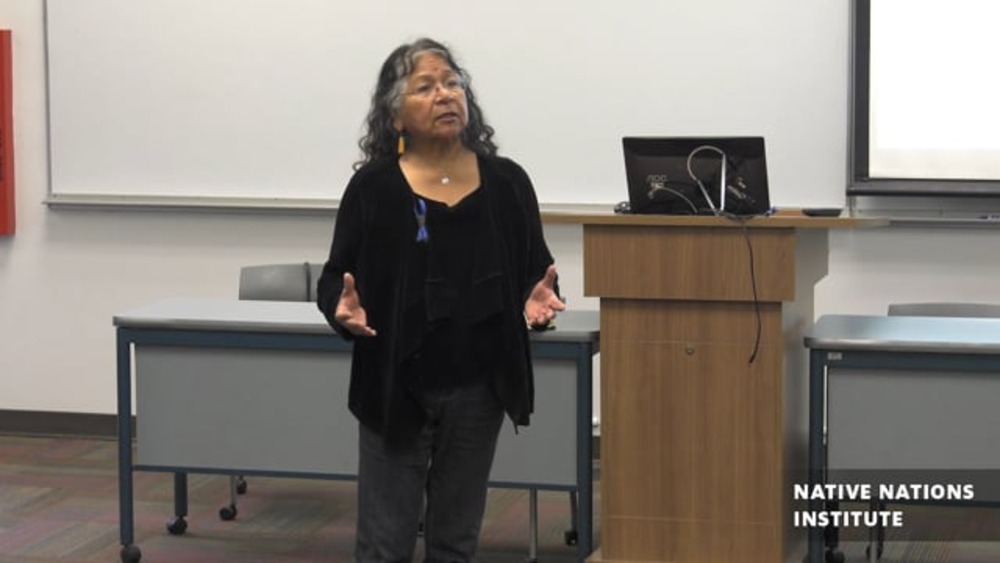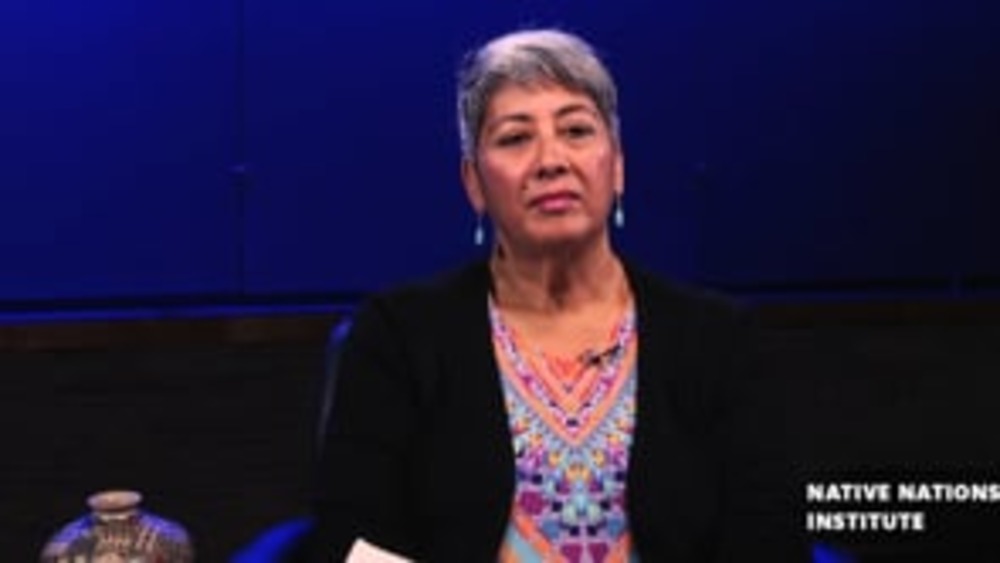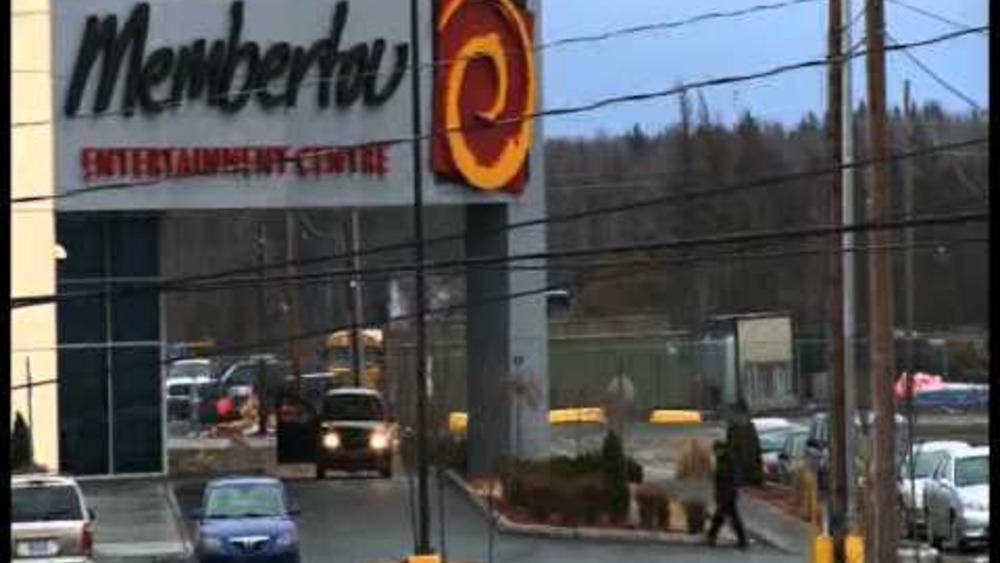Indigenous Governance Database
women leaders

Diane Enos: Endurance through Native Leadership
Diane Enos is an Attorney, Councilwoman & Former President of Salt River Pima-Maricopa Indian Community. She has also served as Vice President of the Inter-Tribal Council of Arizona, Chairwoman of the Arizona Indian Gaming Association, and as a Western Area Delegate to the Tribal Justice…

Diane Enos: Native Women in Governance
Diane Enos, Attorney, Councilwoman & Former President of Salt River Pima-Maricopa Indian Community. In addition to her tenure with the Salt River Pima – Maricopa Indian Community, Diane has served as Vice President of the Inter-Tribal Council of Arizona, as Chairwoman of the Arizona Indian…

Sharon Toi: Honoring Maori Traditions and Governance
Sharon Toi is Ngāpuhi Māori and a 2014 recipient of a Fulbright Visiting Scholar-Ngā Pae o Te Māramatanga Graduate Award that funded her residency at the Indigenous Peoples Law and Policy Program housed within the University of Arizona’s College of Law. Sharon shares her extensive knowledge…

IWCL Case Study: Membertou First Nation
This is a documentary produced by the Coady International Institute and is part of their "Indigenous Women in Community Leadership" series. The video is described on their website as follows: "The community of Membertou has come a long way to be crowned the "jewel of Cape Breton". Once a small and…
